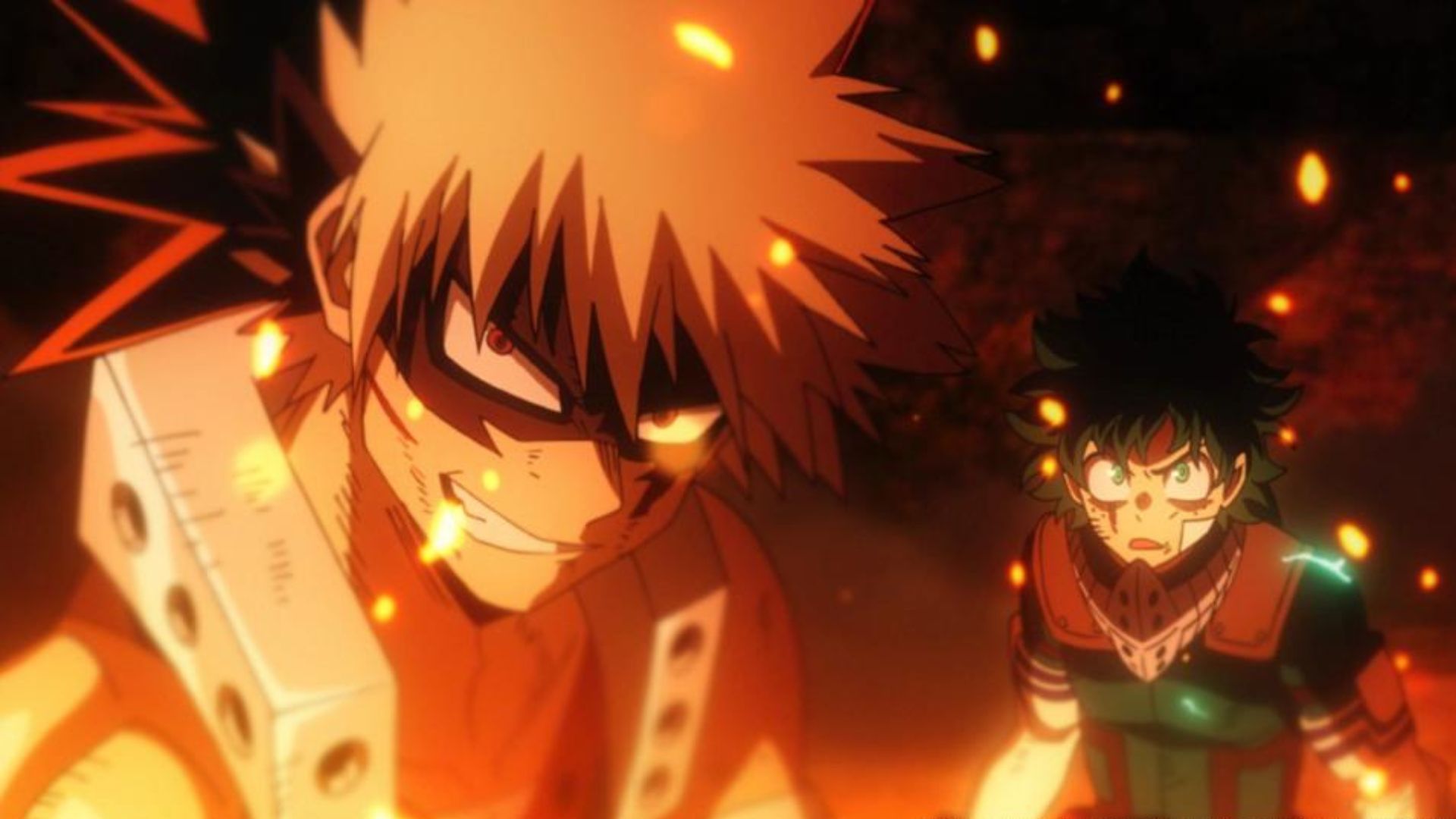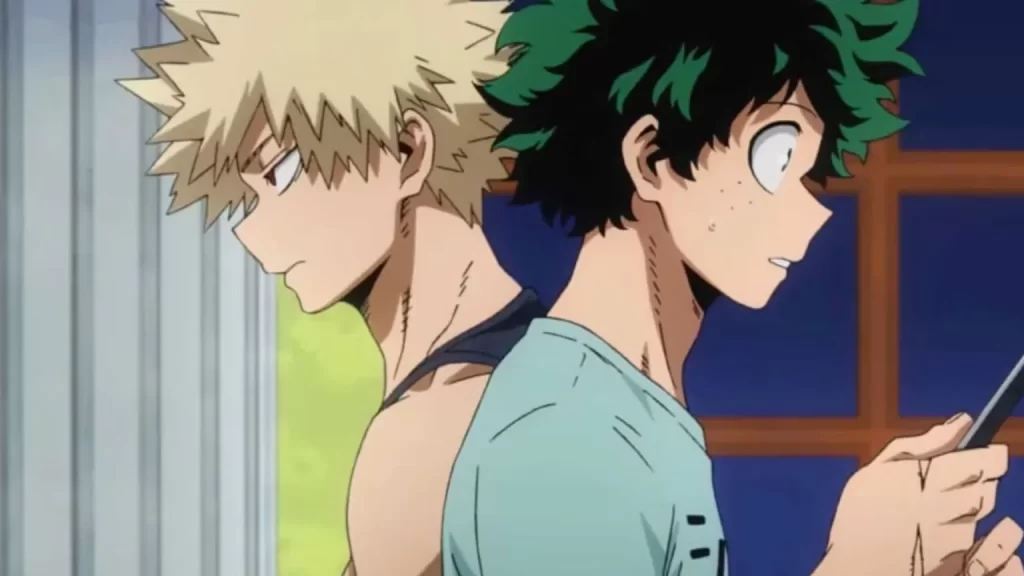In an unexpected turn of events, the recently released MHA Chapter 406 spoilers have reignited interest in one of My Hero Academia’s most implausible theories—the Bakugo time-traveler theory, or more affectionately known as the Bak-U-Go theory.
For those unfamiliar with this theory, it says that Bakugo will eventually become the second wielder of One For All by traveling back in time at some point in the series. This speculation gained momentum when Deku encountered all eight previous One For All wielders in a dream during the Joint Training Arc. Two of these wielders remained unnamed shadowy figures, one of which bore a striking visual resemblance to Bakugo with spiky hair and arm gauntlets.
While some skeptics argued it resembled Dabi as much as Bakugo, the Bak-U-Go theory gained substantial popularity, thanks in part to Bakugo’s fervent fanbase.
While many initially dismissed this theory as improbable, the latest MHA Chapter 406 spoilers suggest there might be more to it than meets the eye. Here’s why this theory is gaining unexpected traction!
MHA Chapter 406 Spoilers: Why the Bak-U-Go theory is starting to make sense
The resurgence of the Bakugo time-traveler theory can be attributed primarily to a surprising interaction between All for One and Bakugo in My Hero Academia Chapter 406. In this chapter, Bakugo is seen matching All for One’s speed while flying, despite the pain he’s enduring from repeatedly hitting the ground. What’s intriguing is Bakugo’s reaction—he’s not just enduring it; he’s laughing and genuinely impressed by his newfound speed.
- Somehow, Bakugo’s actions seem to be provoking a stronger reaction from All For One than even All Might ever did. That is when it dawns on All For One: Bakugo resembles the second One For All user a little too much.
- While we finally get the second user’s name revealed in the chapter, the damage is already done. For years, fans have debated whether the second One For All user was intended to look like Bakugo, and All For One’s reaction practically confirms it.
It’s essential to note that we’re still uncertain about Horikoshi’s ultimate direction for the series, but one can’t help but find this theory increasingly plausible. Here’s why!
Why the Bakugo Time Travelling Theory makes sense after MHA 406 spoilers:

- The foundation of the Bakugo Time-Travel Theory lies in the concept of velocity as a catalyst for time travel. As the story unfolds, Bakugo’s quirk has undergone significant evolution, making him one of, if not the fastest hero in the series.
- What if this newfound speed is more than just a power-up? What if it’s a key component of a larger narrative twist? If our guess is right, when things inevitably take a turn for the worse, the heroes might realize that their only shot at fixing things would be to send their fastest hero back in time for a second chance.
As we were diving deep into the theory, it hit us that this twist might just bring My Hero Academia right back to where it all began. Picture this: the series ends with a closing book aptly titled “My Hero Academia,” driving home the point that it’s a tale of heroes and villains, destined to play out in an endless loop until balance reigns supreme.
The Domino Effect of Bakugo’s Time Travel:

- The core idea behind the Bakugo Time-Travel Theory is that every time Bakugo goes back in time, he ends up with a new quirk. What’s interesting is that it’s not just him; everyone he knows gets different quirks too. Essentially, this is like their way of trying to find a future where they win, but they don’t even realize they’re changing everything.
The theory also suggests that all the chaos in the story started because of time travel. This splits the story into two timelines. In one, time travel never happened, and All For One stays in power. In the other, where time travel is a thing, the heroes get a chance to fight back, even though they’re at a disadvantage.
While the Bakugo Time-Travel Theory may not be everyone’s top choice, it’s hard to ignore that, after all this time, it’s starting to seem somewhat plausible. Some argue that time travel might not fit well with the core themes of My Hero Academia, like heroes dealing with their limitations. After all, one of Bakugo’s central themes is about working with his own limitations. But who knows, maybe Hori could make it work?
Conclusion:
The Bakugo Time-Travel Theory adds an intriguing layer of complexity to My Hero Academia. While not everyone’s favorite, it’s becoming harder to dismiss. Whether it aligns with the series’ core themes remains to be seen, but it’s a theory that keeps fans buzzing with anticipation. The future of the series is uncertain, but that’s part of what makes My Hero Academia so captivating.
